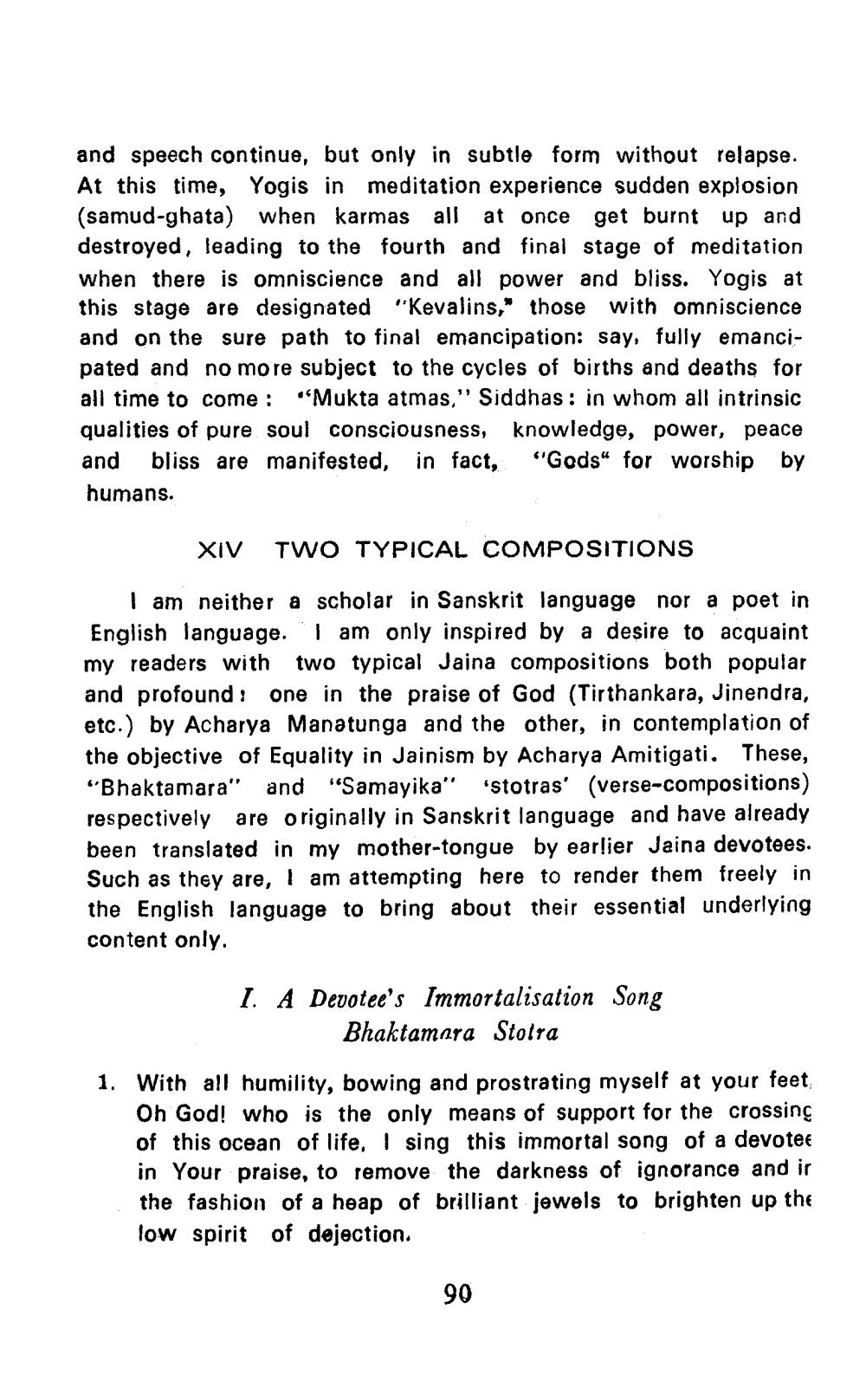________________
and speech continue, but only in subtle form without relapse. At this time, Yogis in meditation experience sudden explosion (samud-ghata) when karmas all at once get burnt up and destroyed, leading to the fourth and final stage of meditation when there is omniscience and all power and bliss. Yogis at this stage are designated "Kevalins," those with omniscience and on the sure path to final emancipation: say, fully emancipated and no more subject to the cycles of births and deaths for all time to come: “Mukta atmas," Siddhas: in whom all intrinsic qualities of pure soul consciousness, knowledge, power, peace and bliss are manifested, in fact, "Gods" for worship by humans.
XIV TWO TYPICAL COMPOSITIONS
I am neither a scholar in Sanskrit language nor a poet in English language. I am only inspired by a desire to acquaint my readers with two typical Jaina compositions both popular and profound: one in the praise of God (Tirthankara, Jinendra, etc.) by Acharya Manatunga and the other, in contemplation of the objective of Equality in Jainism by Acharya Amitigati. These, "Bhaktamara" and "Samayika" istotras' (verse-compositions) respectively are originally in Sanskrit language and have already been translated in my mother-tongue by earlier Jaina devotees. Such as they are, I am attempting here to render them freely in the English language to bring about their essential underlying content only.
I. A Devotee's Immortalisation Song
Bhaktamara Stotra
1. With all humility, bowing and prostrating myself at your feet
Oh God! who is the only means of support for the crossing of this ocean of life. I sing this immortal song of a devotee in Your praise, to remove the darkness of ignorance and in the fashion of a heap of brilliant jewels to brighten up the low spirit of dejection.
90




